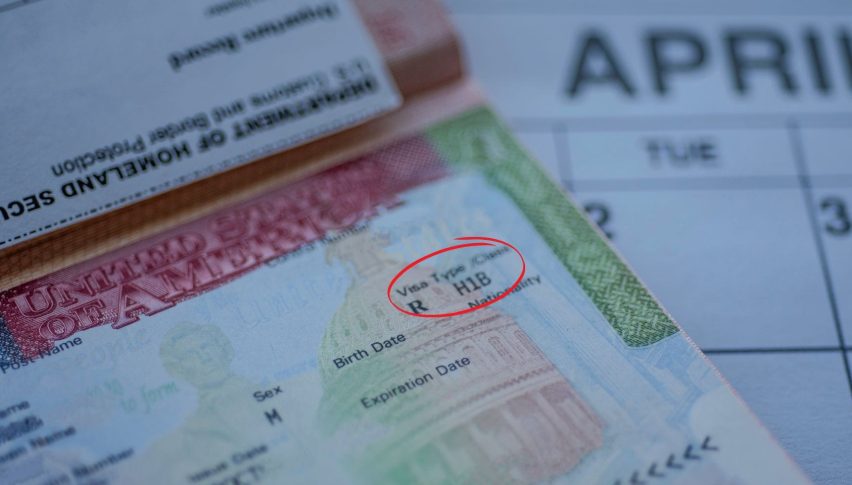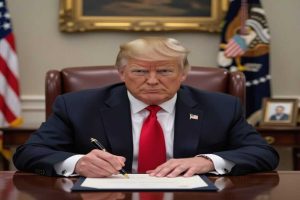Trump’s $100K H-1B Hammer: Infosys, Wipro, Cognizant Stocks Plunge on Visa Fee Shock
The Trump administration announced that it will require companies to pay $100,000 annually for H-1B worker visas,

Quick overview
- The Trump administration has announced a $100,000 annual fee for H-1B worker visas, which may negatively impact the technology sector reliant on skilled workers from China and India.
- Secretary of Commerce Howard Lutnick emphasized the need to prioritize hiring recent American graduates over foreign workers.
- Shares of Indian tech companies and Cognizant Technology Solutions fell between 2% and 5% following the announcement, reflecting concerns over the new visa fees.
- Critics argue that the H-1B program suppresses wages for American workers, while proponents believe it is essential for attracting top talent and maintaining competitiveness.
The Trump administration announced that it will require companies to pay $100,000 annually for H-1B worker visas, which could have a significant negative impact on the technology sector that primarily relies on skilled workers from China and India. Trump has initiated a comprehensive crackdown on immigration, including measures aimed at limiting certain types of legal immigration.
One of the most notable changes to temporary employment visas made by his administration is the modification of the H-1B visa program. The fee for H-1B visas is set at $100,000 per year, and major companies are reportedly in agreement with this requirement.

Secretary of Commerce Howard Lutnick stated, “If you are going to train anyone, it will be a recent graduate from one of our nation’s best universities. Teach Americans.” He urged companies to “stop hiring people to replace us.”
US-listed shares of Indian tech companies, such as Infosys and Wipro, as well as shares of Cognizant Technology Solutions—an IT services company that relies heavily on H-1B visa holders—closed down between 2% and 5%. According to government statistics, about two-thirds of jobs filled through the H-1B program are in the computer industry; however, employers also utilize the visa to hire engineers, teachers, and healthcare professionals. Last year, approximately 71% of all H-1B visas granted went to Indian nationals, making India the largest beneficiary, while China accounted for 11.7%.
The tech sector, which contributed millions of dollars to Trump’s presidential campaign, has expressed concerns about his threats to crack down on H-1B visas.
Critics of the program, including many American workers in the technology sector, argue that it allows companies to suppress wages and exclude qualified Americans from job opportunities.
Conversely, proponents, such as Elon Musk, the CEO of Tesla, believe that the program attracts highly skilled individuals essential for addressing talent shortages and maintaining the competitiveness of businesses.
Musk, a naturalized U.S. citizen originally from South Africa, previously held an H-1B visa. He argues that increasing fees “creates a disincentive to attract the smartest talent in the world to the U.S.” According to Deedy Das, a partner at Menlo Ventures, a venture capital firm, “If the U.S. stops attracting top talent, it significantly diminishes its capacity to innovate and grow the economy.” The new fees could drastically increase expenses for businesses, particularly for start-ups and smaller tech companies.
- Check out our free forex signals
- Follow the top economic events on FX Leaders economic calendar
- Trade better, discover more Forex Trading Strategies
- Open a FREE Trading Account